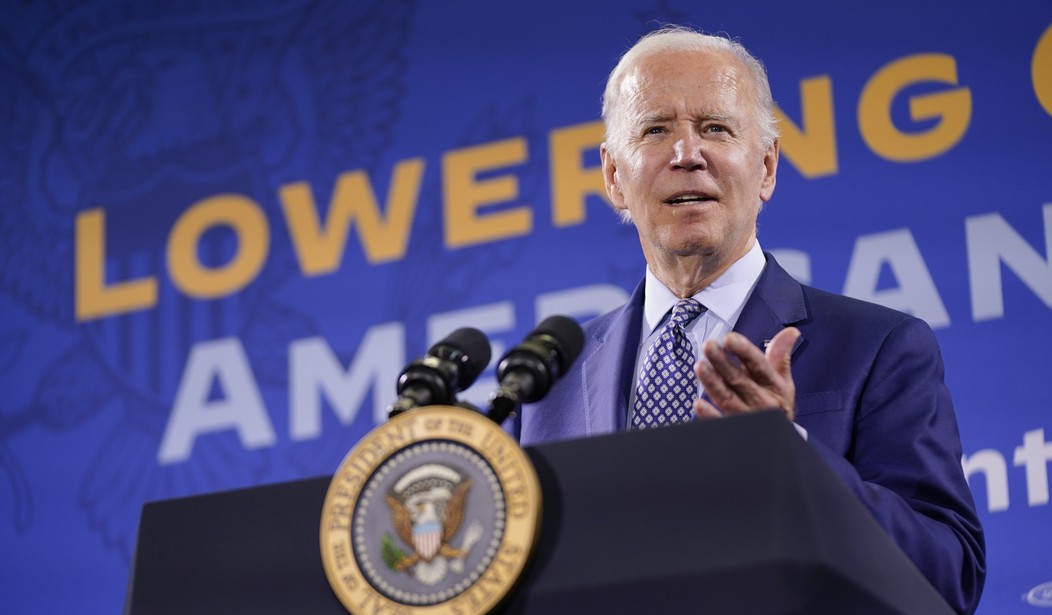America is celebrated for its economic dynamism and ample and generously paid employment opportunities. It's a nation that attracts immigrants from around the world. Yet Americans are bummed and have been for a while. They believe that life was better 40 years ago. And maybe it was on some fronts, but not economically.
Surveys repeatedly demonstrate that Americans view today's economy in a negative light. Seventy-six percent believe the country is going in the wrong direction. Some polls even show that young people believe they'll be denied the American dream. Now, that might turn out to be true if Congress continues spending like drunken sailors. But it certainly isn't true based on a look back in time. By nearly all economic measures, we're doing much better today than we were in the 1970s and 1980s -- a time most nostalgic people revere as a great era.
In a recent article, economist Jeremy Horpedahl looked at generational wealth (all assets minus all debt) and how today's young people are faring compared to previous generations. His findings are surprising. After all the talk about how Millennials are the poorest or unluckiest generation yet, Horpedahl's data show they with dramatically more wealth than Gen Xers had at the same age. And this wealth continues to grow.
What about income? A new paper by the American Enterprise Institute's Kevin Corinth and Federal Reserve Board's Jeff
Larrimore looks at income levels by generation in a variety of ways. They find that each of the past four generations had higher inflation-adjusted incomes than did the previous generation. Further, they find that this trend doesn't seem to be driven by women entering the workforce.
That last part matters because if you listen to progressives and New Right conservatives, you might get a different story: that today's higher incomes are only because both parents must now work for a family to afford a middle-class lifestyle. They claim that supporting a family of four on one income, as many people did back in the '70s and '80s, is now impossible. Believing this claim understandably bums people out.
Recommended
But it's not true. One of its many problems, in addition to the data evidence provided by Corinth and Larrimore, is that it mistakenly implies that single-income households were the norm. As early as 1978, 50% of married couples were dual earners and just 25.6% relied only on a husband's income. I also assume that there are more dual-income earners now than there were in the '80s. While this may be true for married couples (61% of married parents are now dual-earners), because marriage itself has declined, single-earner families have become relatively more common.
Maybe the overall morosity in the economy has to do with the perception that it's more expensive to raise a family these days than it used to be. Another report by Angela Rachidi looks at whether the decline in marriage, fertility, and the increase in out-of-wedlock childbirths are the result of economic hardship. She finds that contrary to the prevailing narrative, "household and family-level income show growth in recent decades after accounting for taxes and transfers." Not only that, but "the costs of raising a family -- including housing, childcare, and higher education costs -- have not grown so substantially over the past several decades that they indicate an affordability crisis."
So, what exactly is bumming people out? We may find an answer in the 1984 Ronald Reagan campaign ad commonly known as "Morning in America." It begins with serene images of an idyllic American landscape waking up to a new day. It features visuals of people going to work, flags waving in front of homes, and ordinary families in peaceful settings. The narrator speaks over these images, detailing improvements in the American condition over the past four years, including job creation, economic growth, and national pride.
I believe this feeling is what people are nostalgic about. It seems that they are nostalgic about a time when America was more united and it was clearer what being American meant. Never mind that this nostalgia is often based on an incomplete and idealized memory of an era that, like ours, was not perfect.
This is a serious challenge that we need to figure out how to address. One thing that won't help, though, is to erroneously claim that people were economically better off back then and call on the government to fix an imaginary problem.
Veronique de Rugy is the George Gibbs Chair in Political Economy and a senior research fellow at the Mercatus Center at George Mason University.

























Join the conversation as a VIP Member